56% of Americans think President Trump has a favorable opinion of Vladimir Putin
Last week’s meeting between Donald Trump and Russian President brought criticism from both parties amid confusion about the American President’s opinions of Russia and his personal relationship with the Russian President. The latest Economist/YouGov Poll tracks a change in perception: although before the summit Americans saw President Trump as friendly towards Russia, now even more believe that is the case.
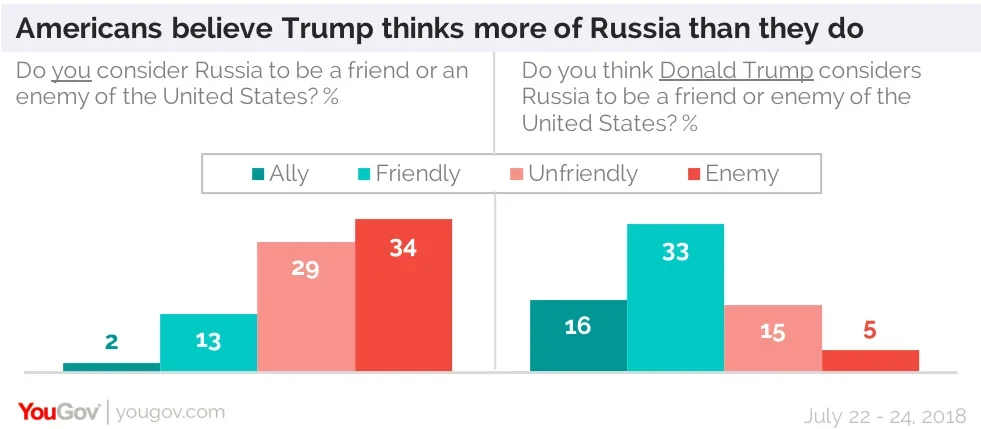
On the other hand, the public’s opinion of Russia has changed hardly at all: Nearly two-thirds – Republicans as well as Democrats -- personally regard Russia as unfriendly or an enemy.
The difference between the public’s views and what Americans say the President believes doesn’t just happen on questions about Russia the country, but also occurs in perceptions about the Russian leader. The public overwhelmingly has an unfavorable view of Vladimir Putin, but thinks President Trump sees him favorably. Republicans are a little less likely to believe the President is a Putin fan, but they agree he thinks differently from them.
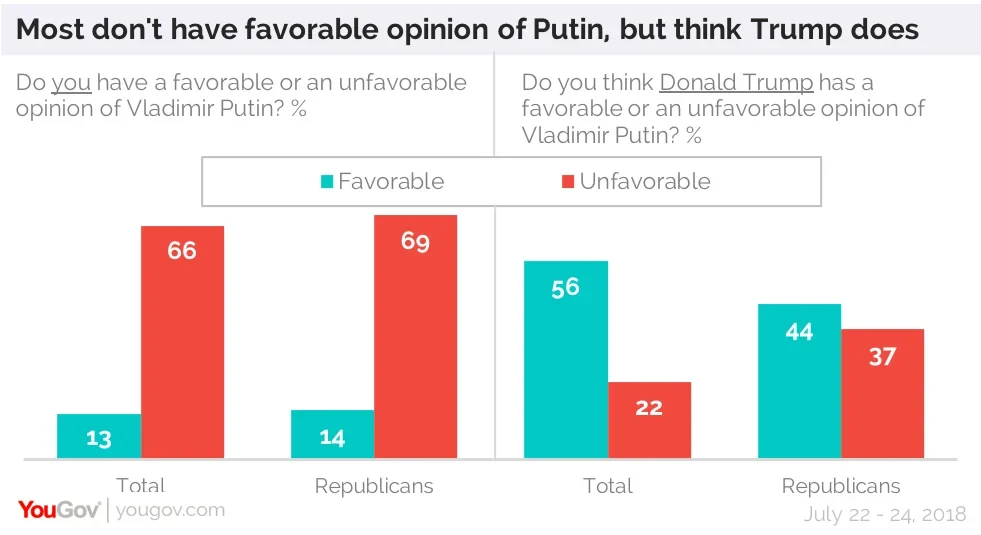
But Republicans continue to stick with the President’s decision to meet with Putin in Helsinki. 71% of Republicans approve of how he is handling Russia, and nearly half (45%) say the two-man summit made relations between the US and Russia better. Among the public overall, disapproval of the President’s handling of Russia outweighs approval 45% to 35%, and as many think the summit made relations worse as say it made it better.
57% (including nearly half of Republicans) view Russia as a serious or very serious threat to the United States, little changed from before the summit. Russia ranks first when the public is asked about America’s greatest foe – ahead of China, North Korea and Iran. The European Union, which was the President’s answer asked this question in an interview with CBS News anchor Jeff Glor, is chosen by hardly any members of the public.
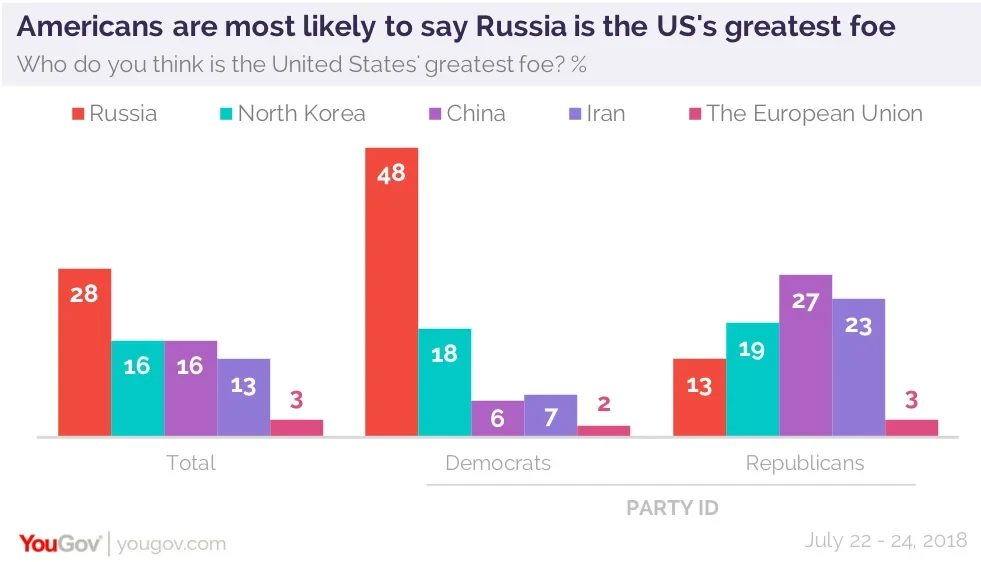
Republicans are different. They put the other countries (though not the EU) ahead of Russia as the country’s greatest foe.
Americans neither dislike nor fear the EU. Three in ten call it an ally, three in ten say it’s friendly. Just 12% say it’s unfriendly and 3% describe it as an enemy. When asked what the President thinks, more believe he views the EU negatively than positively.
For many Americans, the issue with international meetings may be Trump himself. By 51% to 35%, Americans say he has bad, not good judgment. A majority overall (and one in four Republicans) thinks he ignores his advisers, and 80% say he speaks and reacts without thinking. Nearly two in three Republicans agree that the President doesn’t think before he reacts, up seven points in the last week.
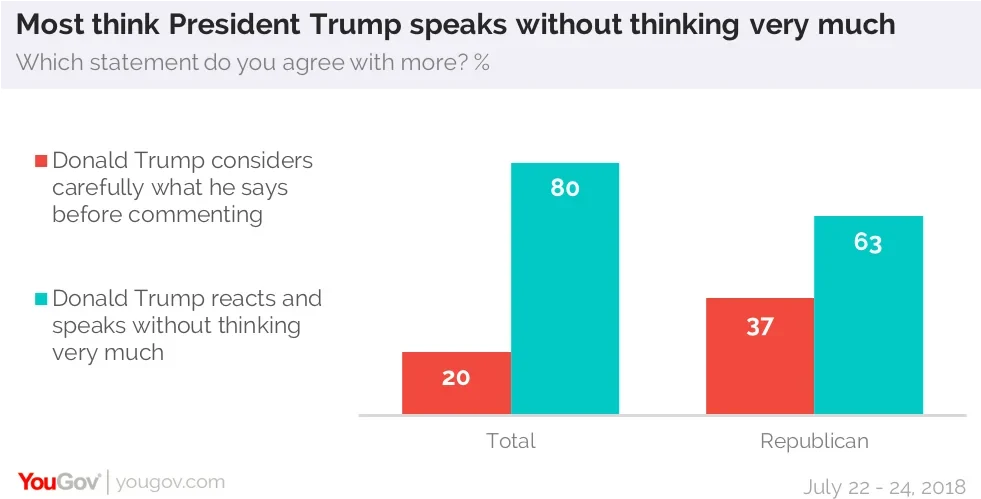
There is a sense among Americans that the President can’t always be believed. More than three in four overall say President Trump makes statements that are untrue at least some of the time (49% believe that happens often), as do a majority of Republicans (though only 21% of Republicans say this happens often). But Republicans who think the President says untrue things give him the benefit of the doubt on why: 48% of Republicans say it’s an accident, 21% think it is on purpose. The public overall (by 40% to 27%) say it’s not an accident.
This style may have put the President at a disadvantage when negotiating with the Russian leader, according to the public. While most believe the President respects Vladimir Putin, a majority don’t think the reverse applies.
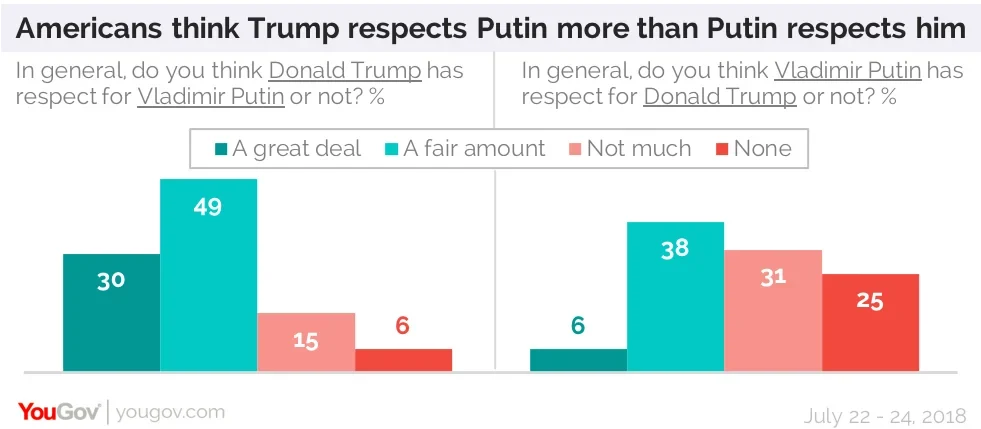
Republicans think differently. Majorities of Republicans believe each leader has at least a fair amount of respect for the other.
As for another summit, there is no consensus on whether that’s a good or bad idea. By more than four to one, Republicans say it is a good idea, by more than five to one, Democrats disagree.







